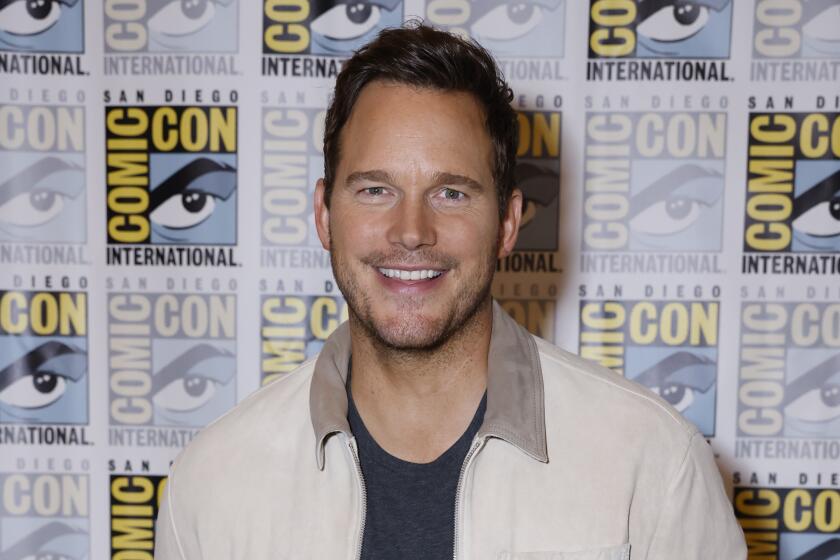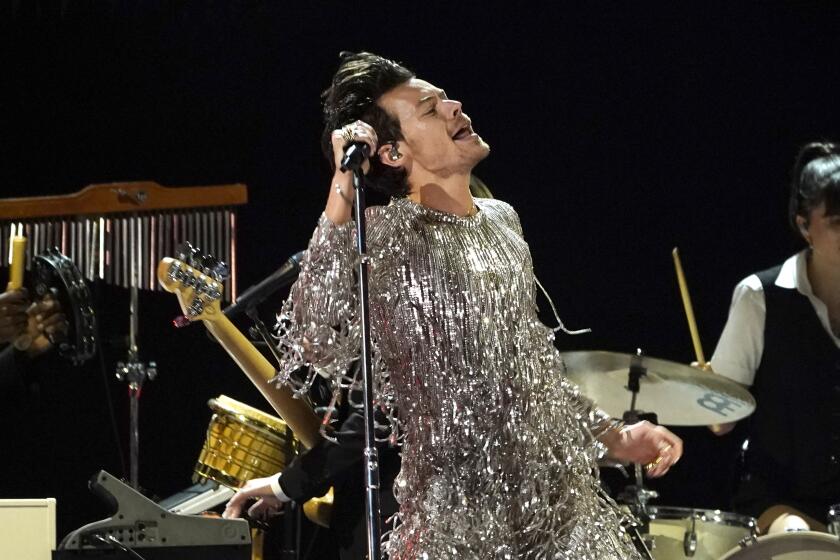Churches That Show Films Can Run Afoul of Copyright Laws
The pastor of a Lancaster church interrupted his sermons during two services last summer to show brief movie scenes, including one of a person praying in a videotape of “Joe Versus the Volcano,” starring Tom Hanks.
At a San Fernando Valley church, a youth group program played a scene exemplifying perseverance in the 1990 movie “The Mission,” starring Robert DeNiro.
The videotapes shown at the Lancaster United Methodist Church were legal. The showing to the Methodist group was not.
The difference: The first church had paid a licensing fee, and the second hadn’t.
This week, the United Methodist Media Center in Pasadena had good news for the 400 Methodist congregations in Southern California and Hawaii about how to stay honest, avoid fines and move creatively into the video age.
Church leaders were told of a recent agreement under which they can pay a yearly fee of $125 to the center and show most videotaped movies without worrying about violating copyright laws.
“A lot of churches think that if they don’t charge to watch them, it’s legal,” said the Rev. Steve Horswill-Johnston, director of the media center.
“But in the last couple of years, one Methodist church had to pay a one-time fine of $500 and another was warned by a government agency about its unauthorized use.”
He said that the Pasadena center negotiated one of the few agreements by a regional Methodist entity with the Los Angeles-based Motion Picture Licensing Corp., which represents more than 40 studios and producers whose films are sold and rented at stores--with labels warning they are for home use only.
The licensing corporation, which was formed in 1989, caused a stir last year when it warned some 50,000 nursery school operators that they must pay licensing fees of up to $325 annually to show movies such as “The Lion King” to children.
The enforcement of copyright provisions created a stir on another front this year when camps were cautioned by a music industry group that they too could face sanctions--for the uncompensated singing of copyrighted songs around campfires.
Harold Bauer, who works for the Motion Picture Licensing Corp. in Newtown, Conn., and handles all licensing inquiries from religious groups, said that Methodist, Presbyterian, Catholic, Baptist and other churches he has dealt with appear eager to understand their obligations under the law with respect to use of movie clips.
“They are saying, in effect, ‘We shall not steal intellectual property,’ ” Bauer said.
It was after dealing for years with innumerable licensing requests from individual congregations that Bauer decided to save time and effort by making comprehensive licensing agreements with regional organizations that cover many congregations, such as entire Catholic dioceses and the California-Pacific United Methodist Conference based in Pasadena.
Nevertheless, Horswill-Johnston knows that many religious leaders, regardless of denomination, are “choosing to ignore” the law because they think it is unlikely to be enforced.
“Most churches learned in the ‘70s that they needed to follow copyright law on printed sheet music, but they don’t see the urgency of complying with video law,” he said.
That could be costly--in terms of legal fees and fines--said Furman York of Nashville, director of EcuFilm, an ecumenical distributor of educational and religious videos. “I’d hate to think that a local church might be selected by federal authorities to make an example of,” York said.
At the 900-member Lancaster United Methodist Church, the Rev. Robert Stimmel said he used a portable screen and videotape projector to illustrate his sermons with film clips, once using the scene from “Joe Versus the Volcano” and other time using a segment of “The War,” starring Kevin Costner.
“We used them in the same way that a preacher normally reads or tells a story during a sermon,” said Stimmel, whose church welcomes the blanket licensing agreement arranged by the Methodist Media Center--a task his church previously did on its own.
Some religious educators maintain that under certain conditions they can use video clips in classes without permission. And the licensing corporation’s Harold Bauer agreed that “if a video is shown in a not-for-profit setting, with only students and teacher present, and if the subject of the video is incorporated in the academic plan at the outset of the school year, the school exemption from copyright law applies. They don’t need a license.”
The agreement the Methodists signed with the Motion Picture Licensing Corp. does not cover movies from Paramount and Columbia Studios, which Bauer said do not approve of blanket licensing.
When the San Fernando Valley Interfaith Council and the host Hindu Temple and Cultural Center in Chatsworth showed the movie “Gandhi” Sept. 30, permission to show the Columbia Pictures movie had to be obtained through the Swank Motion Picture Co. in St. Louis.
“We had to use their copy of the movie and we paid $125 plus shipping for the onetime permission to show it,” said Arlene Landon of the interfaith council.
Horswill-Johnston predicted there will be increasing use of film segments in religious education and worship services. “It’s the language of life for many young people,” said the Pasadena-based minister.
More to Read
The biggest entertainment stories
Get our big stories about Hollywood, film, television, music, arts, culture and more right in your inbox as soon as they publish.
You may occasionally receive promotional content from the Los Angeles Times.






